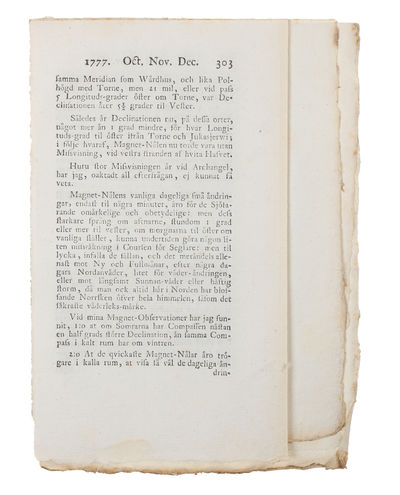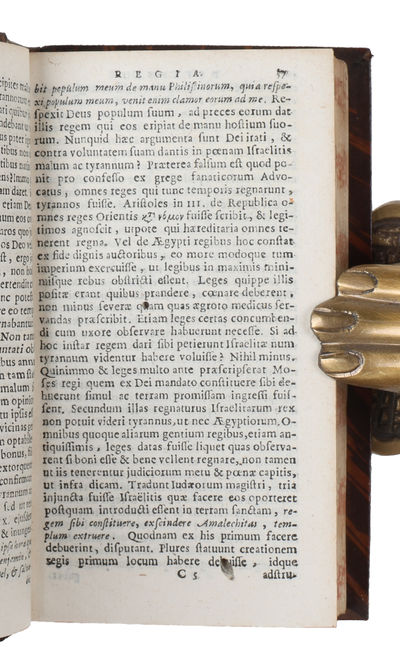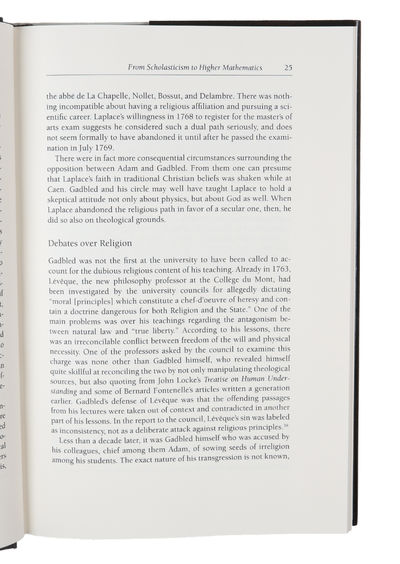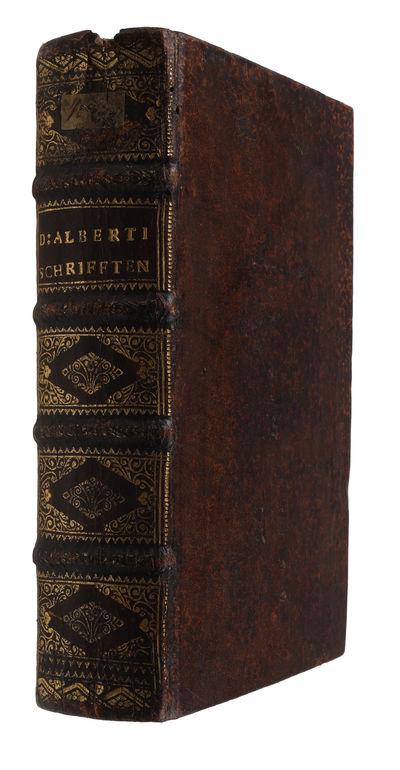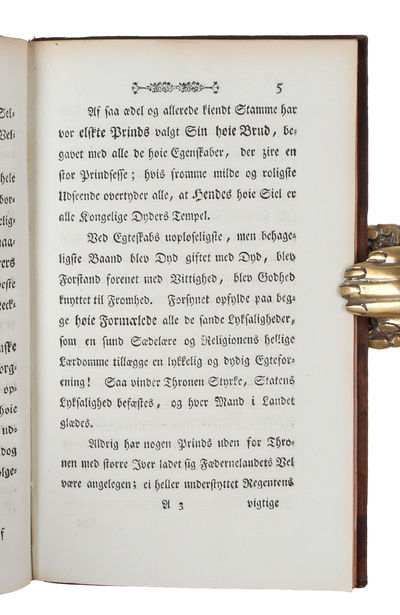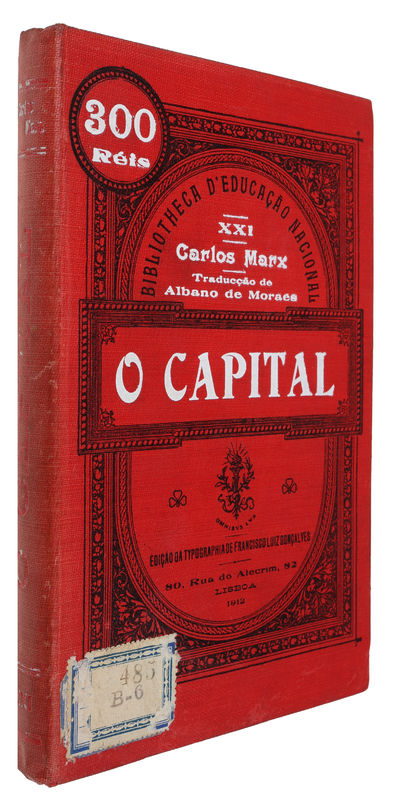NOZICK, ROBERT.
Philosophical Explanations. - [A GROUNDBREAKING WORK OF EPISTEMOLOGY]
Herman H. J. Lynge & Søn A/S
lyn36286
Cambridge, Massachusetts, 1981. Royal 8vo. Orig. full grey cloth w. white lettering to spine. Orig. black, red and white dust-jacket, not price-clipped. A few small tears to capitals and corners of dust-jacket w. very minor loss. Binding and internally near mint. XII, (2), 764, (1) pp.
First edition, presentation copy from the author "For Iz/ Fondly,/ Bob", dated "August, 1981", of this highly important work of modern day philosophy. This is Nozick's second book, and it constitutes his most influential contribution to philosophy outside of political theory. In this work Nozick develops his "externalist" theory of knowledge. The work covers many aspects of metaphysics and ethics, but especially the metaphysics of personal identity occupies a central role in this main work, which comes second in importance to only his seminal "Anarchy, State and Utopia" (1974). Robert Nozick (1938 -2002) was an American philosopher, born in Brooklyn, and Pellegrino University Professor at Harvard University. He was a thinker with wide-ranging interests, and he is now considered one of the most important and influential political philosophers of the Anglo-American analytic tradition, together with John Rawls. In his Philosophical Explanations, which received the Phi Beta Kappa Society's Waldo Emerson Award, Nozick brings forth the now so famous, but then novel and (still) controversial accounts of knowledge, free will, personal identity and meaning of life. The "Philosophical Explanations" is thus a groundbreaking work in several ways:According to traditional theories of knowledge, a knower S knows a proposition p if and only if S believes p, p is true, and S is justified in believing p. The problem with the three instances here is the last, namely what does "being justified in believing" entail? Nozick here comes up with a unique contribution that has been of great importance to epistemologists ever since: He determines this belief negatively. It is the counterfactuals that make the true belief count as knowledge, i.e. 1) S would not believe p, if p were not true (the "variation" condition), and 2) under different circumstances, S would still believe and would not believe the negation of p (the "adherence" condition). Nozick determines a belief that fulfills these conditions as one that "tracks the truth". Furthermore, Nozick uses his analysis in answering skepticism, and controversially denies the "closure principle" (if S knows that p and that p entails q, then S knows that q), bringing him great (and not necessarily positive) fame among epsitemologists. Thus Nozick here presents an epistemological system designed to deal with Gettier-style problems as well as those posed by skepticism, and his argument became highly influential. Furthermore, in "Philosophical Explanations", Nozick also presents his "closest continuer" theory, his seminal contribution to the debate of personal identity. The question of personal identity has a long tradition among philosophers and can stem from puzzles like: If person A wakes up in the body of person B, who is he? Is he A, or is he B? Nozick comes up with an answer to such questions, namely that it is the later person who "most closely continues" the earlier one who is the one truly identical to the latter. Of course, this leaves room for interpretation, and so in Nozick's view, personal identity comes to partly depend upon the factors that are most important to the answerer, e.g. bodily or psychological properties.Apart from the groundbreaking ideas presented in this work, it is also famous for posing numerous questions, the answers to which are often left to the reader, for using non-philosophical works to illustrate philosophical points, and not least for the curious style, in which it is written."This book puts forward its explanations in a very tentative spirit; not only do I not ask you to believe they are correct, I do not think it important for me to believe them correct, either. Still, I do believe, and hope you will find it so, that these proposed explanations are illuminating and worth considering, that they are worth surpassing; also, that the process of seeking and elaborating explanations, being open to new possibilities, the new wonderings and wanderings, the free exploration, is itself a delight. Can any pleasure compare to that of a new idea, a new question?There is sexual experience, of course, not dissimilar, with its own playfulness and possibilities, its focused freedom, its depth, its sharp pleasures and its gentle ones, its ecstacies. What is the mind's excitement and sensuality? What its orgasm? Whatever, it unfortunately will frighten and offend the puritans of the mind (do the two puritanisms share a common root?) even as it expands others and brings them joy." (Nozick, Introduction, p. 24)."Iz" in the presentation is the famous philosopher of education, Israel Scheffler, Professor Emeritus of Education and Philosophy at Harvard University. He is a founding member of The National Academy of Education and author of "Four Pragmatists", "In Praise of the Cognitive Emotions", "Symbolic Worlds" and other works in philosophy as well as of a memoir on his early Jewish education, "Teachers of My Youth".
First edition, presentation copy from the author "For Iz/ Fondly,/ Bob", dated "August, 1981", of this highly important work of modern day philosophy. This is Nozick's second book, and it constitutes his most influential contribution to philosophy outside of political theory. In this work Nozick develops his "externalist" theory of knowledge. The work covers many aspects of metaphysics and ethics, but especially the metaphysics of personal identity occupies a central role in this main work, which comes second in importance to only his seminal "Anarchy, State and Utopia" (1974). Robert Nozick (1938 -2002) was an American philosopher, born in Brooklyn, and Pellegrino University Professor at Harvard University. He was a thinker with wide-ranging interests, and he is now considered one of the most important and influential political philosophers of the Anglo-American analytic tradition, together with John Rawls. In his Philosophical Explanations, which received the Phi Beta Kappa Society's Waldo Emerson Award, Nozick brings forth the now so famous, but then novel and (still) controversial accounts of knowledge, free will, personal identity and meaning of life. The "Philosophical Explanations" is thus a groundbreaking work in several ways:According to traditional theories of knowledge, a knower S knows a proposition p if and only if S believes p, p is true, and S is justified in believing p. The problem with the three instances here is the last, namely what does "being justified in believing" entail? Nozick here comes up with a unique contribution that has been of great importance to epistemologists ever since: He determines this belief negatively. It is the counterfactuals that make the true belief count as knowledge, i.e. 1) S would not believe p, if p were not true (the "variation" condition), and 2) under different circumstances, S would still believe and would not believe the negation of p (the "adherence" condition). Nozick determines a belief that fulfills these conditions as one that "tracks the truth". Furthermore, Nozick uses his analysis in answering skepticism, and controversially denies the "closure principle" (if S knows that p and that p entails q, then S knows that q), bringing him great (and not necessarily positive) fame among epsitemologists. Thus Nozick here presents an epistemological system designed to deal with Gettier-style problems as well as those posed by skepticism, and his argument became highly influential. Furthermore, in "Philosophical Explanations", Nozick also presents his "closest continuer" theory, his seminal contribution to the debate of personal identity. The question of personal identity has a long tradition among philosophers and can stem from puzzles like: If person A wakes up in the body of person B, who is he? Is he A, or is he B? Nozick comes up with an answer to such questions, namely that it is the later person who "most closely continues" the earlier one who is the one truly identical to the latter. Of course, this leaves room for interpretation, and so in Nozick's view, personal identity comes to partly depend upon the factors that are most important to the answerer, e.g. bodily or psychological properties.Apart from the groundbreaking ideas presented in this work, it is also famous for posing numerous questions, the answers to which are often left to the reader, for using non-philosophical works to illustrate philosophical points, and not least for the curious style, in which it is written."This book puts forward its explanations in a very tentative spirit; not only do I not ask you to believe they are correct, I do not think it important for me to believe them correct, either. Still, I do believe, and hope you will find it so, that these proposed explanations are illuminating and worth considering, that they are worth surpassing; also, that the process of seeking and elaborating explanations, being open to new possibilities, the new wonderings and wanderings, the free exploration, is itself a delight. Can any pleasure compare to that of a new idea, a new question?There is sexual experience, of course, not dissimilar, with its own playfulness and possibilities, its focused freedom, its depth, its sharp pleasures and its gentle ones, its ecstacies. What is the mind's excitement and sensuality? What its orgasm? Whatever, it unfortunately will frighten and offend the puritans of the mind (do the two puritanisms share a common root?) even as it expands others and brings them joy." (Nozick, Introduction, p. 24)."Iz" in the presentation is the famous philosopher of education, Israel Scheffler, Professor Emeritus of Education and Philosophy at Harvard University. He is a founding member of The National Academy of Education and author of "Four Pragmatists", "In Praise of the Cognitive Emotions", "Symbolic Worlds" and other works in philosophy as well as of a memoir on his early Jewish education, "Teachers of My Youth".
Address:
Silkegade 11
DK-1113 Copenhagen Denmark
Phone:
CVR/VAT:
DK 16 89 50 16
Email:
Web:
![Philosophical Explanations. - [A GROUNDBREAKING WORK OF EPISTEMOLOGY] (photo 1)](https://d3525k1ryd2155.cloudfront.net/h/634/975/1035975634.0.l.0.jpg)
![Philosophical Explanations. - [A GROUNDBREAKING WORK OF EPISTEMOLOGY] (photo 2)](https://d3525k1ryd2155.cloudfront.net/h/634/975/1035975634.1.l.0.jpg)
